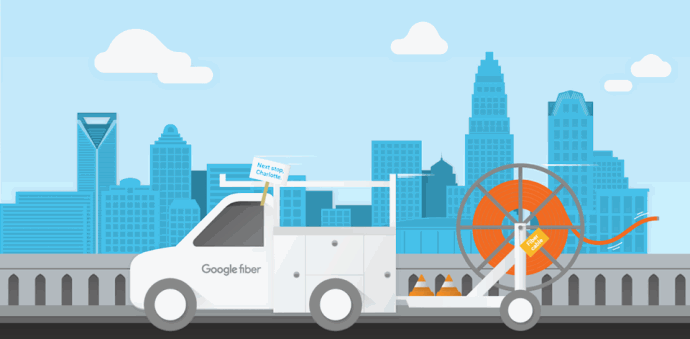It seems Google Fiber is taking a breather on rollout in parts of the USA while it reconsiders strategy and technology.
Google Fiber is an Internet connectivity service available in some U.S. cities, providing a connection speed of up to one gigabit per second.

While the company will continue to work in U.S. cities where fiber services have already been rolled out or are in the midst of doing so, others earmarked for Google Fiber will need to wait a while longer for blazing fast internet services.
"For most of our “potential Fiber cities” — those where we’ve been in exploratory discussions — we’re going to pause our operations and offices while we refine our approaches," stated Craig Barratt, SVP, Alphabet and CEO of Access.
These cities included Dallas, Los Angeles, and Phoenix.
Mr. Barratt stated the team need to focus on " new technology and deployment methods to make superfast Internet more abundant than it is today."
Some are speculating Google may turn to a hybrid fibre/wireless mix. This technology has already been successfully deployed in Australia by Lightning Broadband; which offers unlimited data home and business connectivity plans up to 1,000 Mbps.
There's good grounds for the speculation.
Early in 2016, Google was given the green light to install wireless antennas on light poles in Kansas City as part of an experiment. In June, it announced it would acquire a wireless broadband provider (that transaction was completed earlier this month).
In August, Business Insider reported Google wanted to expand the Kansas experiment in up to 24 US locations.
Hybrid fiber wireless (sometimes referred to as Fi-Wi) can be rolled out faster and cheaper than fiber alone.
Google faced significant challenges in Nashville; where 88,000 utility poles needed to have Google Fiber attached - and for various reasons, it's been quite a slog.
Google Fiber, which launched in 2010, reportedly has 28,250 subscribers and revenue of an estimated $12.6 million a year. Part of the service is Fiber TV, a premium add-on service also requiring a "tv box" that enables customers to watch 220+ channels and thousands of shows and movies on demand.
As part of its digital inclusion efforts, the company has also provided some families in public housing with Gigabit Internet for $0/month.



